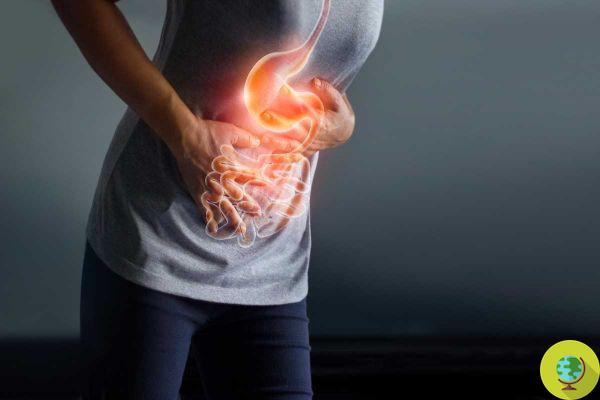
New research has shown that taking antibiotics can affect the gut microbiome
Don't store avocado like this: it's dangerousNew research has shown that taking antibiotics can affect the gut microbiome
There is a clear link between taking antibiotics and a increased risk of developing colon cancer. This was confirmed by one study developed by researchers from Umeå University, Sweden, after researching 40.000 cancer cases. In fact, the impact of antibiotics on the gut microbiome is thought to be at the root of the increased risk of cancer.
I results they point out that there are many reasons to be restrictive with antibiotics. While in many cases antibiotic therapy is necessary and saves lives, in the case of less serious ailments that can still heal, care must be taken. Mainly to prevent bacteria from developing resistance but, as this study shows, also because antibiotics can increase the risk of future colon cancers. (Read also: Liver cancer: common symptoms not to be underestimated that can be a warning sign)
A systematic review
The researchers found that both women and men who took antibiotics for over six months ran a 17% higher risk of developing cancer in the ascending colon, the first part of the colon to be reached by food after the small intestine.
However, there was no increased risk of descending colon cancer, nor was there an increased risk of rectal cancer in men taking antibiotics, while women taking antibiotics had a slightly reduced incidence of rectal cancer. .
The increased risk of colon cancer was visible as early as five to ten years after taking antibiotics. Although the risk was greater for those taking antibiotics for several courses, a small, but statistically significant, increase in cancer risk was also observed after a single course of antibiotics.
The results
The present study used data on 40.000 patients from the Swedish colorectal cancer registry from 2010 to 2016. These were compared with a matched control group of 200.000 cancer-free individuals from the Swedish population. Data on the use of antibiotics by individuals was collected from the Swedish Register of Prescribed Drugs for the period 2005-2016. The Swedish study largely confirms the results of an earlier, somewhat smaller British study.
To understand how the antibiotics increase the risk, the researchers also studied a bactericidal, non-antibiotic drug used against urinary infections that does not affect the microbiome. There was no difference in the frequency of colon cancer in those who used this drug, and this suggests that it is theimpact of antibiotics on the microbiome which increases the risk of developing these serious conditions.
The study covers only orally administered antibiotics, but intravenous antibiotics can also affect the microbiota. Obviously, there is no reason to be alarmed because the increase in risk is moderate and the effect on the absolute risk for the individual is quite small.
Furthermore, we always remember the importance of prevention, i.e. undergo control screenings, so that any cancer can be detected early or even prevented, as sometimes the precursors of cancer can be removed.
Follow us on Telegram | Instagram | Facebook | TikTok | Youtube
Photos: JNCI
Could it be interesting for you:
- Acne: Researchers have developed an effective method inspired by the beetle
- Create antibacterial, low-cost wound dressings from durian peel, the most smelly fruit in the world
- Tumors: new mechanism discovered that starves cancer cells and makes them more sensitive to treatment


























